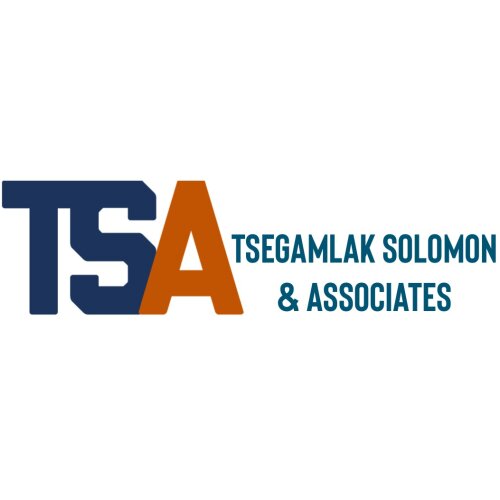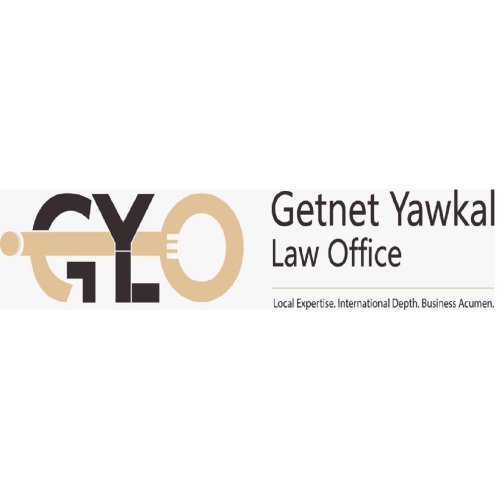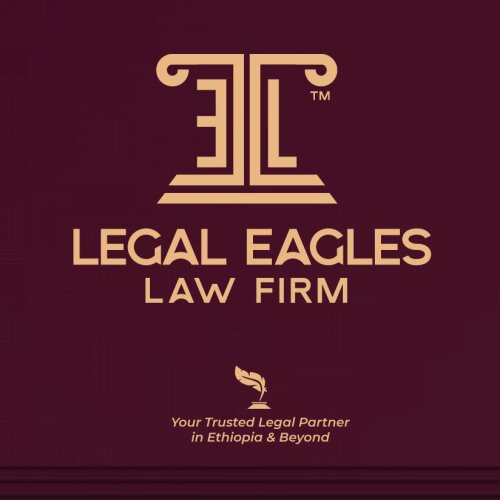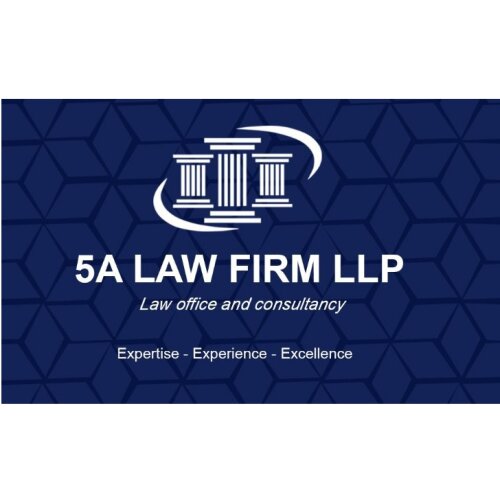Best Licensing Lawyers in Ethiopia
Share your needs with us, get contacted by law firms.
Free. Takes 2 min.
Or refine your search by selecting a city:
List of the best lawyers in Ethiopia
About Licensing Law in Ethiopia
Licensing law in Ethiopia regulates the authorization of individuals and businesses to engage in specific activities or ventures. The process typically involves obtaining official permission from relevant government entities, complying with specific regulations, and often requires ongoing compliance and renewal requirements. Licensing is crucial for various sectors, including business, broadcasting, healthcare, and more, to ensure that all operations are legal and adhere to safety and quality standards.
Why You May Need a Lawyer
There are several situations where individuals or businesses may require legal assistance with licensing in Ethiopia:
- Understanding complex licensing requirements for a new business venture.
- Handling disputes or legal issues arising from licensing agreements.
- Guidance on the renewal or modification of existing licenses.
- Legal representation in cases where a license is denied or revoked.
- Navigating the bureaucratic processes involved in obtaining necessary permits.
Local Laws Overview
The Ethiopian licensing framework is governed by various regulations and legal provisions. Key aspects include:
- Business Licensing: Businesses must obtain the appropriate licenses from relevant government departments. The Ministry of Trade and Regional Integration plays a significant role in the licensing of businesses.
- Sector-Specific Regulations: Licensing requirements can vary significantly between different sectors, such as telecommunications, health, and agriculture, each governed by specific regulations and authorities.
- Renewal and Compliance: Licenses often have expiration dates and must be renewed periodically. There are also compliance checks to ensure adherence to the conditions under which a license is granted.
- Penalties and Enforcement: Operating without a proper license or failing to meet licensing conditions may result in fines, business closure, or legal action.
Frequently Asked Questions
What types of licenses are available in Ethiopia?
There are various types of licenses depending on the business or professional sector, including business licenses, import/export licenses, broadcasting licenses, environmental licenses, and professional practice licenses, among others.
How do I apply for a business license in Ethiopia?
To apply for a business license, you must submit the necessary documentation to the Ministry of Trade and Regional Integration or other relevant authorities, which may include proof of identity, registration documents, and any sector-specific requirements.
How long does it take to obtain a license?
The time frame for obtaining a license can vary widely based on the type of license and the specific government body involved. It may take from a few weeks to several months.
Can a license be transferred or sold?
This depends on the type of license and the governing regulations. Some licenses may be transferable, subject to approval from the relevant authorities, while others are strictly non-transferable.
What do I do if my application for a license is denied?
If your application is denied, you can request clarification from the issuing body, make necessary adjustments to your application, or potentially appeal the decision, preferably with legal assistance.
What are the consequences of operating without a license?
Operating without a license can result in significant legal penalties, including fines, closure of the business, and potential criminal charges depending on the severity and nature of the violation.
Is it necessary to renew a license, and how often?
Yes, most licenses require renewal to remain valid. The renewal period varies depending on the type of license and the regulations of the issuing body. Annual renewal is common.
What happens if I don't comply with licensing conditions?
Failure to comply with licensing conditions can lead to enforcement actions such as fines, suspension, or revocation of the license.
Are there any recent changes in licensing laws in Ethiopia?
Licensing laws in Ethiopia are periodically reviewed and updated. It is advisable to consult official resources or legal professionals for the most current information.
How can I appeal a licensing decision?
You can appeal a licensing decision by following the process outlined by the respective licensing authority. This usually involves submitting an appeal document and may require legal representation.
Additional Resources
For further assistance or information about licensing in Ethiopia, consider reaching out to the following bodies and resources:
- The Ministry of Trade and Regional Integration: Oversees various business licensing processes.
- The Ethiopian Investment Commission: Provides information on investment-related licenses.
- Local Chambers of Commerce: Offer resources and support for business licensing.
- Sector-specific regulatory bodies: Such as the Ethiopian Food and Drug Authority for health-related licenses.
Next Steps
If you need legal assistance in licensing, consider the following steps:
- Research: Gather as much information as possible about the specific type of license you need.
- Consult Legal Experts: Seek advice from legal professionals specializing in Ethiopian licensing laws to guide you through the process and ensure compliance.
- Prepare Documentation: Ensure that all necessary documents are prepared and complete before submitting your license application.
- Follow Up: Stay in touch with the relevant authorities to track the progress of your application or to resolve any issues that arise.
Lawzana helps you find the best lawyers and law firms in Ethiopia through a curated and pre-screened list of qualified legal professionals. Our platform offers rankings and detailed profiles of attorneys and law firms, allowing you to compare based on practice areas, including Licensing, experience, and client feedback.
Each profile includes a description of the firm's areas of practice, client reviews, team members and partners, year of establishment, spoken languages, office locations, contact information, social media presence, and any published articles or resources. Most firms on our platform speak English and are experienced in both local and international legal matters.
Get a quote from top-rated law firms in Ethiopia — quickly, securely, and without unnecessary hassle.
Disclaimer:
The information provided on this page is for general informational purposes only and does not constitute legal advice. While we strive to ensure the accuracy and relevance of the content, legal information may change over time, and interpretations of the law can vary. You should always consult with a qualified legal professional for advice specific to your situation.
We disclaim all liability for actions taken or not taken based on the content of this page. If you believe any information is incorrect or outdated, please contact us, and we will review and update it where appropriate.
Browse licensing law firms by city in Ethiopia
Refine your search by selecting a city.

















